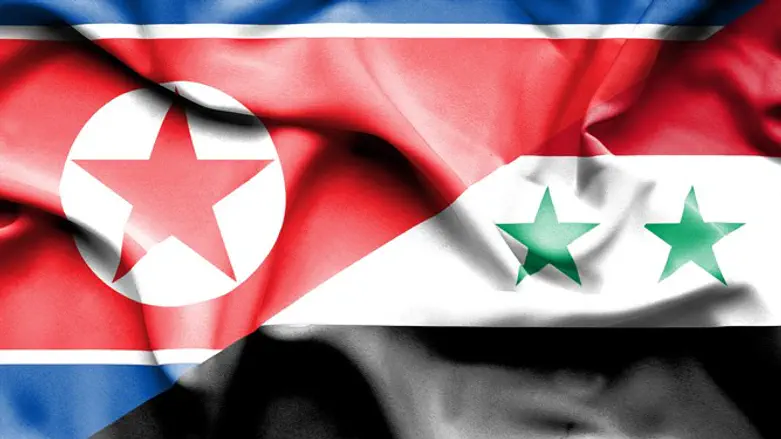
Two North Korean shipments to a Syrian government agency responsible for the country's chemical weapons program were intercepted in the past six months, Reuters reported Monday, citing a confidential United Nations report on North Korea sanctions violations.
The report by a panel of independent UN experts, which was submitted to the Security Council earlier this month and seen by Reuters on Monday, gave no details on when or where the interdictions occurred or what the shipments contained.
"The panel is investigating reported prohibited chemical, ballistic missile and conventional arms cooperation between Syria and the DPRK (North Korea)," the experts wrote in the 37-page report.
"Two member states interdicted shipments destined for Syria. Another Member state informed the panel that it had reasons to believe that the goods were part of a KOMID contract with Syria," according to the report.
KOMID is the Korea Mining Development Trading Corporation. It was blacklisted by the Security Council in 2009 and described as Pyongyang's key arms dealer and exporter of equipment related to ballistic missiles and conventional weapons.
In March 2016, the council also blacklisted two KOMID representatives in Syria, noted Reuters.
"The consignees were Syrian entities designated by the European Union and the United States as front companies for Syria's Scientific Studies and Research Center (SSRC), a Syrian entity identified by the Panel as cooperating with KOMID in previous prohibited item transfers," the UN experts wrote.
SSRC has overseen the country's chemical weapons program since the 1970s.
The North Korean and Syrian missions to the United Nations did not immediately respond to a request for comment.
The Syrian government agreed to a 2013 deal, brokered by the U.S. and Russia, to surrender its chemical weapons.
However, the Organization for the Prohibition of Chemical Weapons (OPCW) has determined several times since then that civilians in Syria may have been exposed to chemicals.
An April 4 attack on Khan Sheikhun in Syria’s Idlib province left more than 90 people dead, including women and children.
An OPCW investigation later confirmed that sarin nerve gas was used in that attack, though it stopped short of saying who was responsible.
Assad has denied using chemical weapons and has even claimed that the Khan Sheikhun attack was fabricated by the United States.
North Korea’s alleged involvement in Syria is not new. In May, a Syrian opposition website claimed that Syrian President Bashar Al-Assad is building a facility to manufacture long-range missiles. That report also claimed that Russian and North Korean soldiers had integrated into the Syrian army.

